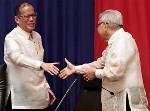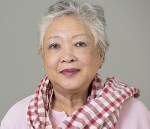Echoes in the press
Published on Fri, 2015-10-02 10:26
A rare sense of euphoria permeated the adoption of the 2030 Agenda and the Sustainable Development Goals (SDGs) in New York this weekend. The multitude of events that have been taking place on First Avenue and beyond had a party atmosphere. And it was not only government delegates but many civil society activists who negotiated for systemic change that celebrated the new agenda that promises transformative change for sustainable development. Yet will implementation actually bring real change? |
|
Source: . Published on Sat, 2015-09-26 00:00
The Sustainable Development Goals (SDGs) negotiated painstakingly over two years by all UN Member States with thousands of public interest organizations providing their commitment and expertise have been copyrighted. And by whom? The UN you would think? But no. They have been re-branded as Global Goals (GGs) and the copyrighted by Project Everyone, a private company incorporated and registered in London. |
|
Source: . Published on Thu, 2015-09-24 00:00
Last August 2 in New York, the United Nations agreed on the new sustainable development agenda as the guide for their global, regional and national policies over the coming fifteen years. At the core of this new global consensus, seventeen “sustainable development goals” (SDGs) spell out a vision for a better future where poverty everywhere will be eradicated, inequalities within and between countries will be substantially reduced, and current unsustainable consumption and production patterns will be transformed. |
Published on Sat, 2015-09-12 17:56
The Supreme Court (SC) has ordered the executive and legislative departments to answer a recent petition of anti-pork barrel advocates against the government’s spending of lump sum and discretionary funds in this year’s budget. In session yesterday, the justices decided to require the Palace and both houses of Congress to comment on the petition for certiorari and prohibition filed last Sept. 1 by Social Watch Philippines, led by former national treasurer Leonor Briones. |
Published on Mon, 2015-08-24 12:27
OZAMIZ CITY, Philippines—The proposed Freedom of Information (FOI) law is dead, and President Aquino and Speaker Feliciano Belmonte should share the blame for its fate. Thus declared a group of advocates who have been pushing Congress for years to enact the measure that would allow greater access to public records and help reduce corruption in government. “(W)ithout decisive support from the President and the leadership of the House of Representatives, the bill will not pass,” read the statement from the Right to Know, Right Now! Coalition which has been campaigning for the FOI bill for more than 15 years. |
Published on Thu, 2015-08-20 00:00
Social Watch finds much to criticize in the Czech Republic, sees rising intolerance. Last year, the Czech Republic managed to overcome economic stagnation, but many people in the country are imminently threatened with poverty, according to the annual report that its authors from the Social Watch international network’s Czech branch presented today. Islam and immigrants became new targets of intolerance, while public expressions of hatred of Romanies were less frequent compared with previous years, the report on the situation in the Czech Republic in 2014 says. Though the Czech Republic has a new strategy of promoting equal opportunities for women and men, the implementation of particular steps is stagnating, the report adds. |
| Source: . Published on Wed, 2015-08-19 00:00 |
Published on Sun, 2015-06-14 21:11
When Denmark hosted the World Summit on Social Development (WSSD) in March 1995, one of the conclusions of that international gathering in Copenhagen was to create a new social contract with “people at the centre of development.” But notwithstanding the shortcomings in its implementation over the last 20 years, the United Nations is now pursuing an identical goal with a new political twist: “global citizenship.” |
Published on Thu, 2015-04-23 19:45
How can one push for greater political participation of women in a patriarchal state that believes government is a fraternity? The Cambodian Committee to Promote Women in Politics faced this exact problem when it first started its work to encourage women to get more politically involved in the early 2000s. Back then, CPWP struggled to convince women to become more “involved in decision-making at the national and local levels” not only because of opposition from men, but also because some of these women didn’t see that as their role in politics. |
|
Source: . Published on Tue, 2015-03-31 00:00
The Sustainable Development Goals differ radically from the current Millennium Development Goals in many aspects. Our author demonstrates the challenges that departing from a donor-oriented development framework poses – particularly for the North, and also with a view to its own development. |
SUSCRIBE TO OUR NEWSLETTER












